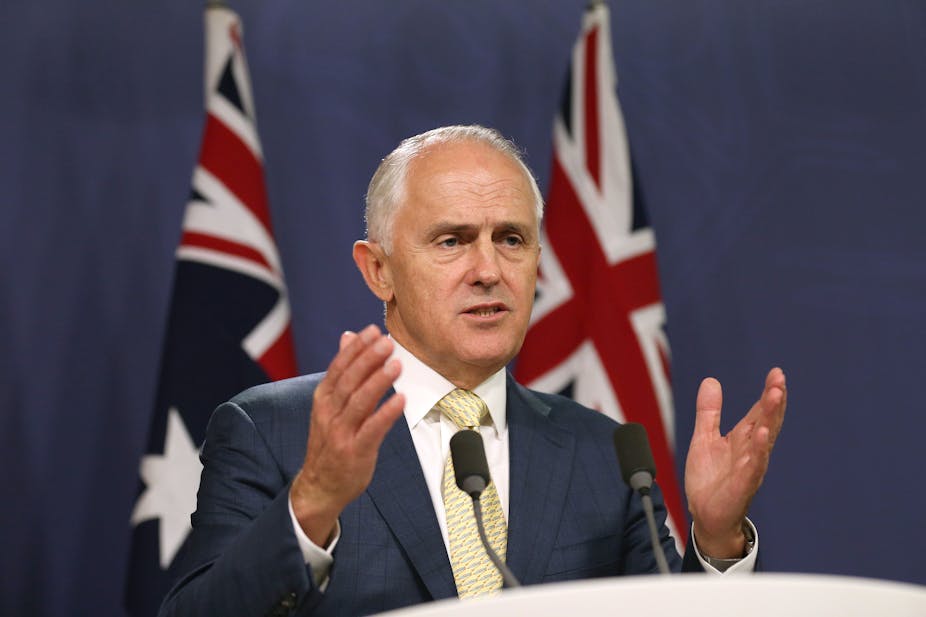It didn’t take long for the political honeymoon to end. Malcolm Turnbull may still be far more popular than the man he removed, but he is now being accused of Abbottesque failings. He can’t sell difficult policy choices, much less actually take them, it seems.
Whatever you may think of the merits of an increase in the GST, the more important question all this raises is about the quality of contemporary political leadership, and not just in Australia.
If we scan the international political horizon, it is difficulty to spot anyone that might be described as an unambiguously great leader.
Perhaps the last person to fit this bill was Nelson Mandela. Few people would argue that he was quintessentially the right man for his times. More than that, he was actually able to shape them in ways that not even his much less gifted successors have been entirely able to undo. This is not to say that they won’t eventually.
It is not only in what is still rather patronisingly known as the “developing world” that effective leadership is in short supply though. On the contrary, the European Union has – rather tragically – become a byword for dysfunction and an inability to resolve pressing economic and social crises. Effective collective leadership is an especially difficult and rare form of the genre and one that is currently conspicuous by its absence.
But even if we set the bar of expectation somewhat lower and simply measure the current generation of political leaders against a national benchmark, they still seem to fall short of the supposedly lofty standards of their predecessors. The conventional wisdom has rapidly become that the Hawke-Keating governments provided Australia’s gold standard for ambitious, necessary reforms that were skillfully executed.
Even if we put to one side the possibility that this retrospective judgement doesn’t easily map onto the often-turbulent politics and economics of the period, was there something about the 1980s and the larger structural transformation that was occurring in an increasingly global economy that made the policy challenges and possible responses clearer and more pressing?
Do those very same market-oriented, “neoliberal” reforms actually make the challenge of governing more difficult for subsequent generations of leaders?
It has become a cliché to observe that “globalisation” has undermined the autonomy of nationally based political actors and empowered highly mobile market forces. The impact – and potential danger – of such changes can be seen in the rise of highly liquid financial capital and its potential to wreak havoc on the so-called real economy.
The inability – or the unwillingness – of politicians across the world to tax and/or regulate such activities in an effective or equitable manner is one of the more distinctive features of the contemporary global economy. It is a failure of political imagination and purpose as much as it is a manifestation of the implacable logic of technological change or financial innovation.
Bernie Sanders has got a point about this sort of thing, at least.
The interesting question now is what difference it might make in the still unlikely event that someone like Sanders were actually elected. Is it actually possible to wind back or even regulate the global financial sector, for example, without precipitating a major economic crisis? My guess is probably not.
How would any national leader cope in such circumstances? What would the prospects for international co-operation be? How would much-vaunted new institutions like the G20 cope with such challenges?
The pessimists probably have the best answers to such questions. It is not simply that politicians seem perennially unable to transcend narrow national interests, but that even a national agenda is becoming harder to pursue. Our political leaders are not entirely to blame for this.
The debate around Britain’s increasingly possible exit from the European Union demonstrates just how parochial politics remains, and how politically difficult it can be for politicians to try and promote difficult ideas with limited popular support.
But if it is difficult for political leaders to co-operate on questions of economic management, how much more so is it on matters of life and death? Barack Obama is criticised for failings of leadership whatever he does. This tells us something about the difficulties of acting from a conflicted democratic base.
Vladimir Putin – and Xi Jinping, for that matter – are far less constrained in this regard. But is this what we would regard as effective or desirable leadership? The rise of Donald Trump is perhaps the most alarming manifestation of widespread desire for “decisive” political leadership.
Leaders often look better in rose-coloured retrospect. Even George W. Bush now has his admirers and apologists. Tony Blair has yet to achieve this despite (or because of) his relentless efforts at self-promotion.
But even the supposedly great leaders might not have been remembered half so fondly without the particular challenge to which they were able to rise. What would FDR have been without the Depression? Or Winston Churchill without the Nazi threat?
Wrestling with tax policy is not terribly exciting, nor is it likely to be the end of civilisation as we know it if the Turnbull government stuffs it up. We are fortunate that this is the greatest challenge our political leaders in this country currently face – not because they are especially bad by world historical standards, but because the problems they face are still gratifyingly mundane. Long may they remain so.

